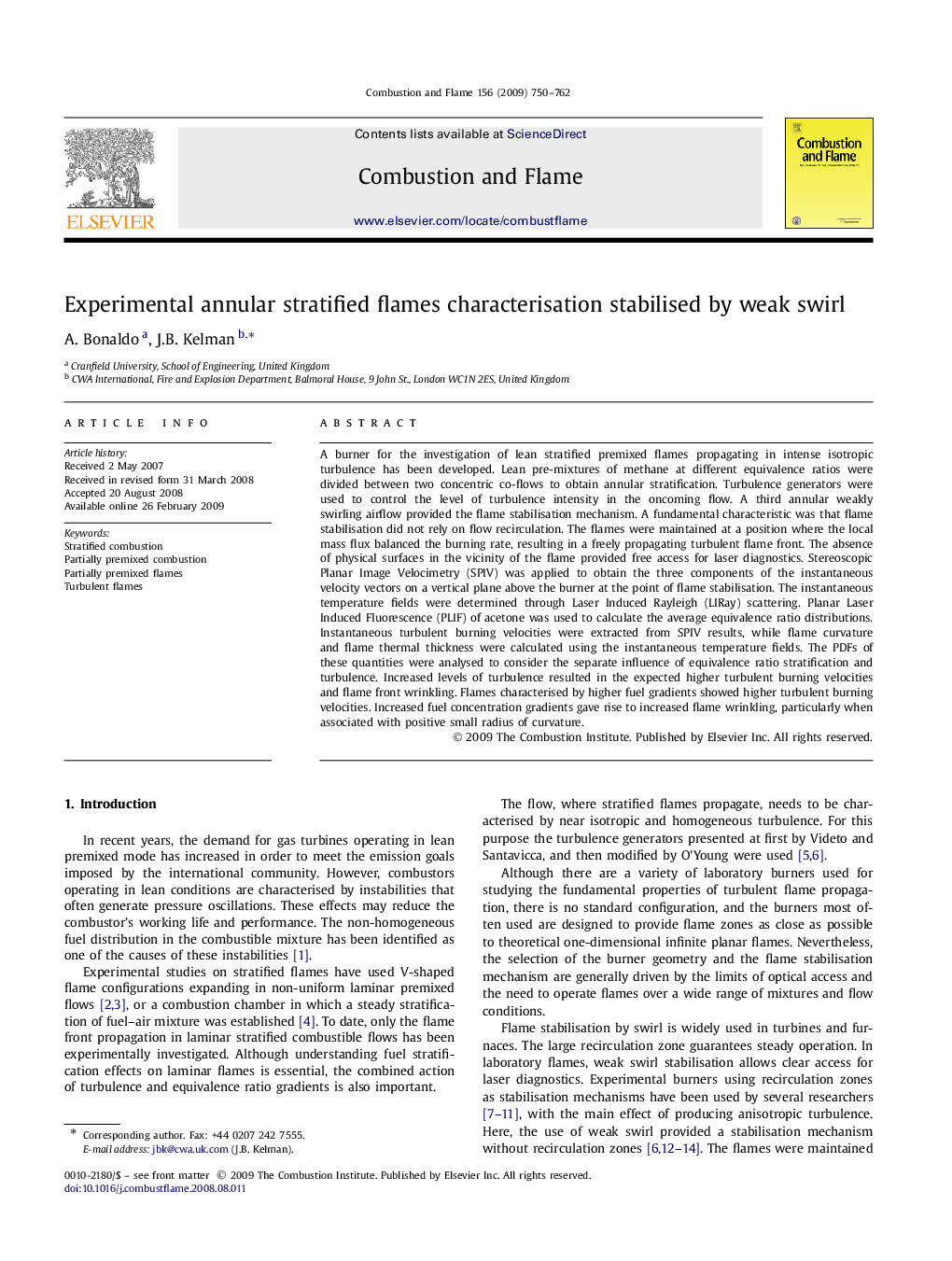| Article ID | Journal | Published Year | Pages | File Type |
|---|---|---|---|---|
| 169881 | Combustion and Flame | 2009 | 13 Pages |
A burner for the investigation of lean stratified premixed flames propagating in intense isotropic turbulence has been developed. Lean pre-mixtures of methane at different equivalence ratios were divided between two concentric co-flows to obtain annular stratification. Turbulence generators were used to control the level of turbulence intensity in the oncoming flow. A third annular weakly swirling airflow provided the flame stabilisation mechanism. A fundamental characteristic was that flame stabilisation did not rely on flow recirculation. The flames were maintained at a position where the local mass flux balanced the burning rate, resulting in a freely propagating turbulent flame front. The absence of physical surfaces in the vicinity of the flame provided free access for laser diagnostics. Stereoscopic Planar Image Velocimetry (SPIV) was applied to obtain the three components of the instantaneous velocity vectors on a vertical plane above the burner at the point of flame stabilisation. The instantaneous temperature fields were determined through Laser Induced Rayleigh (LIRay) scattering. Planar Laser Induced Fluorescence (PLIF) of acetone was used to calculate the average equivalence ratio distributions. Instantaneous turbulent burning velocities were extracted from SPIV results, while flame curvature and flame thermal thickness were calculated using the instantaneous temperature fields. The PDFs of these quantities were analysed to consider the separate influence of equivalence ratio stratification and turbulence. Increased levels of turbulence resulted in the expected higher turbulent burning velocities and flame front wrinkling. Flames characterised by higher fuel gradients showed higher turbulent burning velocities. Increased fuel concentration gradients gave rise to increased flame wrinkling, particularly when associated with positive small radius of curvature.
